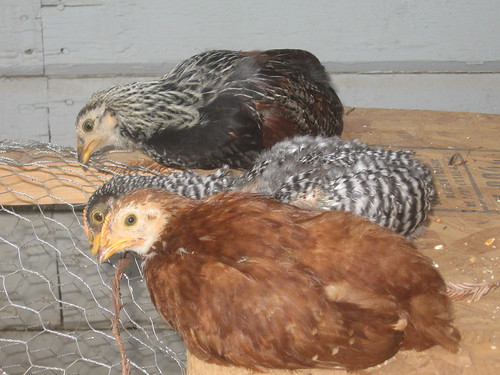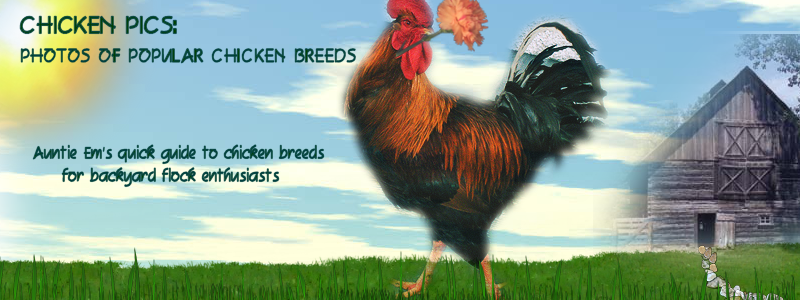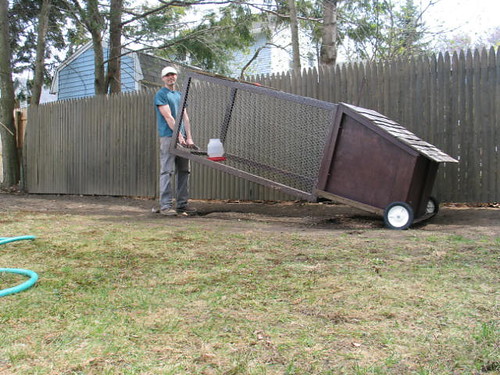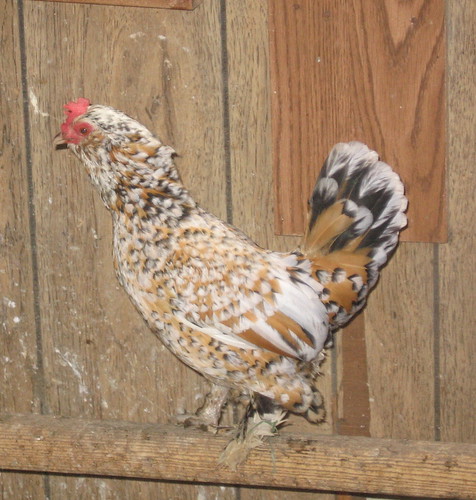 Young Hens
Young HensYoung Rooster
It's quite difficult to determine which chicks are roosters and which are hens until about eight weeks of age. And even then, it still may be hard to determine the sex of the chick until full maturation at about 5-6 months. There are some characteristics and behaviors you can look for, beginning at about three to five weeks. I was sure that one of my Rhode Island Reds was a rooster because of the larger comb, the feathers, the loud clucking that sounded like an attempt to crow, and the aggressive, independent behavior, but alas, he turned out to be a she!
Here are some ways to help you identify which of your baby chicks are hens (pullets) and which are roosters (cockerels):
1. Combs and Wattles
At about five weeks of age, your chicks will begin to develop red wattles and combs. The roosters will develop larger wattles and combs that are colored more brightly red.
2. Back and Tail Feathers
By eight weeks of age, your chicks will begin to develop more pronounced feathers. The roosters will have feathers that are more pointed looking on their backs and sides as well as longer tail feathers that include long sickles. The hens will have rounder looking feathers and their tails will be considerably shorter and rounder.
3. Crowing
By eight weeks of age, the roosters will begin to crow. At first their crows will sound pathetic and screechy, but as they practice, you will begin to recognize the familiar crowing sound, cock-a-doodle-do. If you have more than one rooster you will also soon realize that each rooster has a very distinctive crow.
4. Aggression and Sexual Behavior
Between five and eight weeks of age, you will notice that roosters will be acting more aggressively than hens. They will establish themselves at the top of the pecking order through their bullying, aggressive behavior. They will also strut around the yard with their bodies much more upright than those of the hens. The roosters will also begin to show sexual interest in the hens and will try to mate.
Good Luck!
And don't be too surprised if Butch lays an egg and Daisy begins to crow!
*
*
*
How to sex chickens, how to tell hens from roosters, how to tell pullets from cockerels, how to determine if chicks are males or females, are my chicks male or female, are my chicks hens or roosters, are my chicks pullets or cockerels, what sex are my chicks, how to tell a hen from a rooster, the difference between young hens and young roosters








